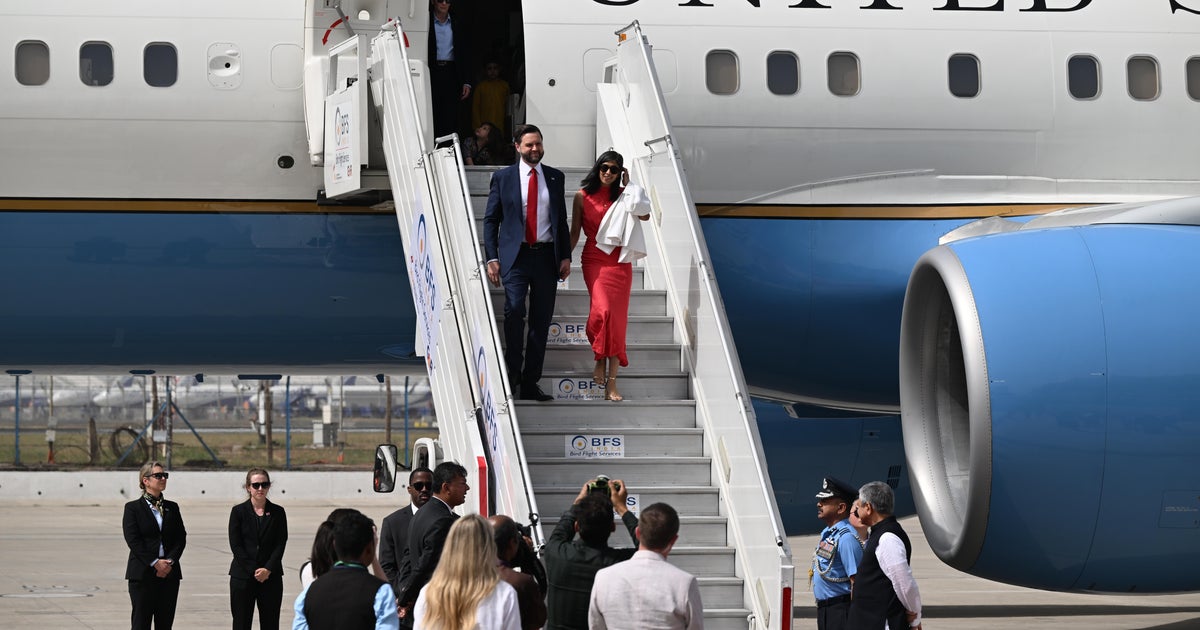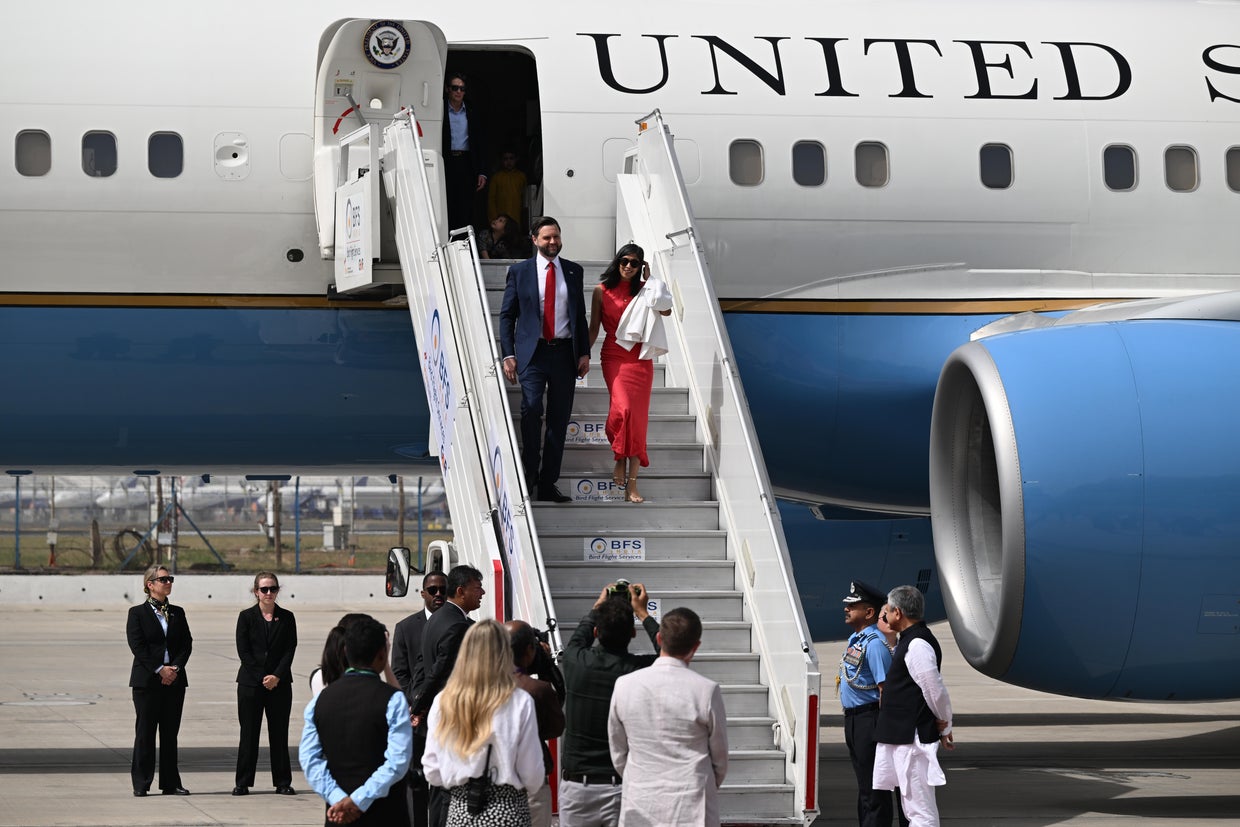New Delhi — U.S. Vice President JD Vance arrived in India on Monday for a four-day visit as New Delhi looks to avoid U.S. tariffs, negotiate a bilateral trade deal with Washington and strengthen ties with the Trump administration.
Vance will meet Prime Minister Narendra Modi on the first day of his largely personal visit. The two leaders are expected to hold discussions on bilateral ties outlined in February when Modi met President Trump in Washington.
The U.S. is India’s largest trading partner and the two countries are now holding negotiations aimed at sealing a bilateral trade agreement this year.
Shortly after his arrival in New Delhi, word came that Pope Francis had died. Vance had met with Francis in Rome on Easter Sunday.
Vance posted his condolences on X, saying,”My heart goes out to the millions of Christians all over the world who loved him. I was happy to see him yesterday, though he was obviously very ill. But I’ll always remember him for the below homily he gave in the very early days of COVID. It was really quite beautiful. May God rest his soul.”
Modi, whose country has nearly 30 million Christians who make up 2.3% of the population, says Francis will always be remembered “as a beacon of compassion, humility and spiritual courage by millions across the world.
“From a young age, he devoted himself towards realizing the ideals of Lord Christ. He diligently served the poor and downtrodden. For those who were suffering, he ignited a spirit of hope,” Modi said.
The Indian leader posted a photo of himself with the pope and said he was “greatly inspired by his commitment to inclusive and all-round development.”
KENNY HOLSTON / Getty Images
They’ve set an ambitious target of more than doubling their bilateral trade to $500 billion by 2030. If achieved, the trade deal could significantly enhance economic ties between the two countries and potentially strengthen diplomatic ties as well.
Vance’s first visit to New Delhi comes amid the backdrop of Mr. Trump’s now-paused tariff program against most countries, including India. It also coincides with a rapidly intensifying trade war between Washington and Beijing, which is New Delhi’s main rival in the region.
Modi and Vance are expected to “review the progress in bilateral relations” and “exchange views on regional and global developments of mutual interest,” India’s Foreign Ministry said last week.
“We are very positive that the visit will give a further boost to our bilateral ties,” spokesperson Randhir Jaiswal said.
Vance was greeted with an Indian classical dance performance after he arrived at New Delhi’s Palam airport on Monday, following his visit to Rome. He is accompanied by his wife, Usha Vance, a practicing Hindu whose parents are from India, along with their children and officials from the U.S. administration.
The couple and their three young children visited the Akshardham Hindu temple in New Delhi after their arrival and are expected to tour the iconic Taj Mahal monument and the 12th-century Amer Fort – a UNESCO world heritage site – during their trip.
Why U.S.-India ties matter
India is a close partner of the U.S. and an important strategic ally in combating the rising influence of China in the Indo-Pacific region.
It’s also part of “the Quad,” which is comprised of the U.S., India, Japan and Australia and is seen as a counterbalance to China’s expansion in the region. Mr. Trump is expected to attend a summit of Quad leaders in India later this year.
Modi established a good working relationship with Mr. Trump during his first term in office and the two leaders are likely to further boost cooperation between their countries.
He was among the first leaders to visit the U.S. and hold talks with Mr. Trump after he returned to the White House. During his visit, Modi hailed a “mega partnership” with the U.S., and kickstarted a negotiation process to minimize the possible fallout of Mr. Trump’s tariffs.
The two leaders also said they planned to grow their defense partnership, with India signaling compliance with the Trump administration’s demands, saying it will purchase more oil, energy and defense equipment from the U.S.
Regardless, Mr. Trump targeted India with a 26% levy, part of which has since been paused. However, he has continued to call India a “tariff abuser” and “tariff king.”
The trade negotiations are especially urgent for New Delhi as it could be hit hard by Mr. Trump’s reciprocal tariffs, particularly in the agriculture, processed food, auto components, high-end machinery, medical equipment and jewelry sectors.


